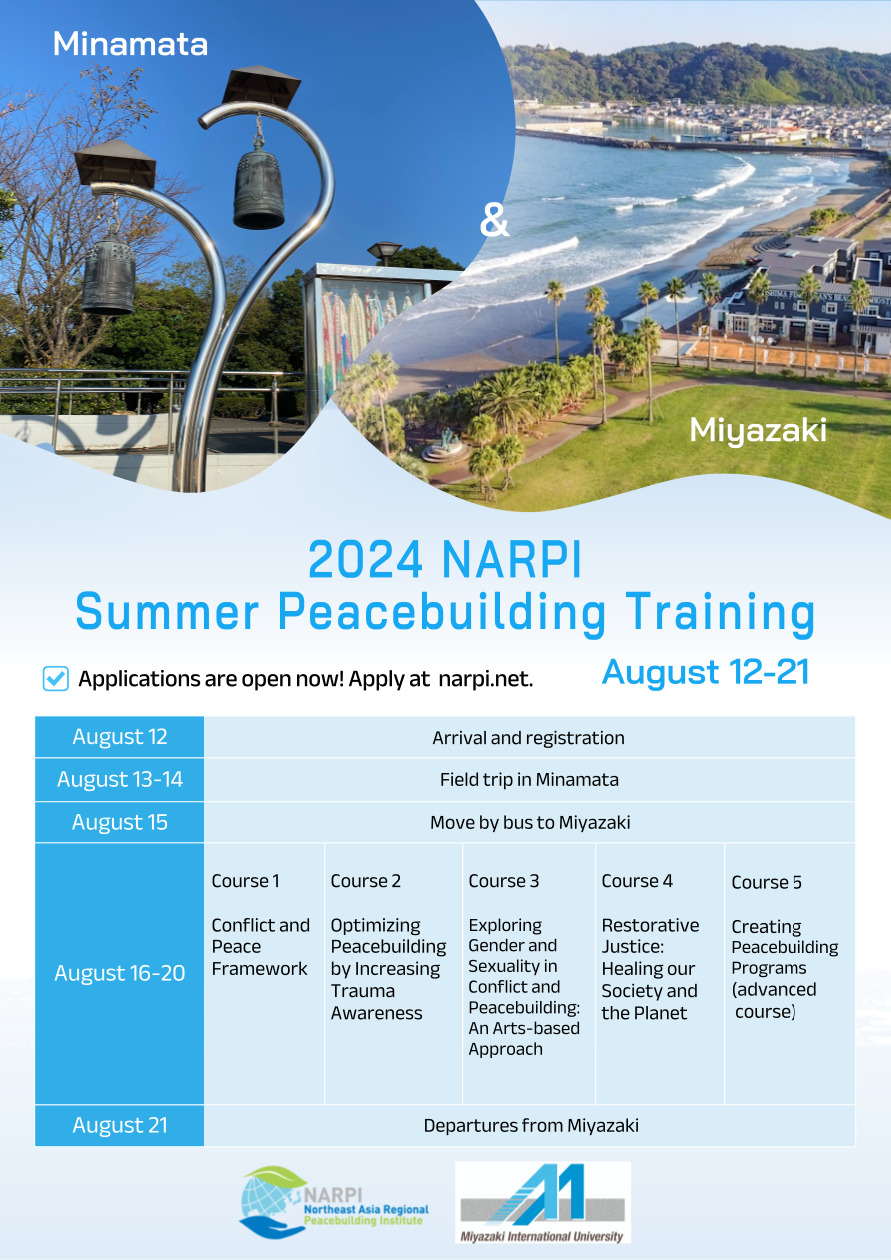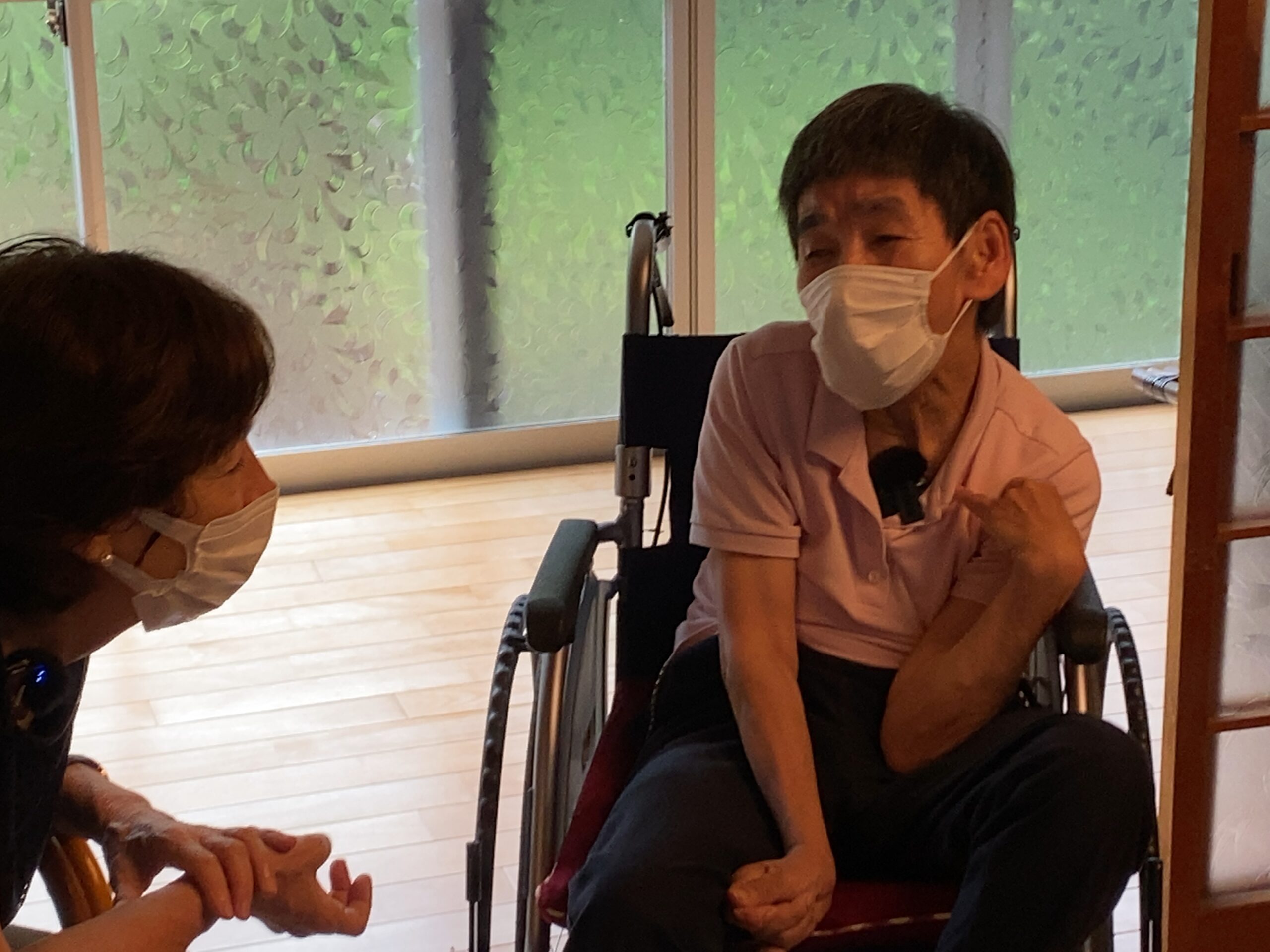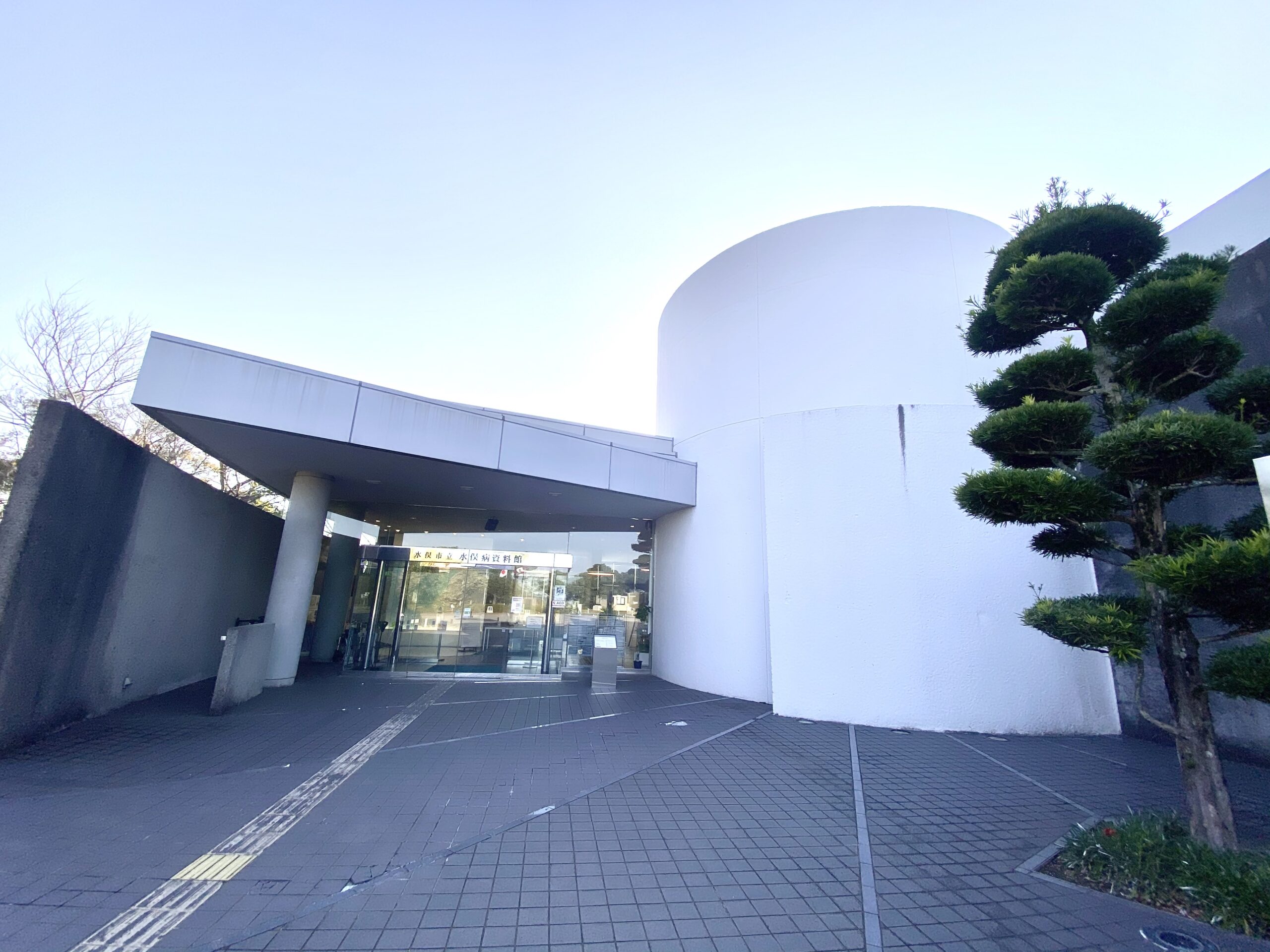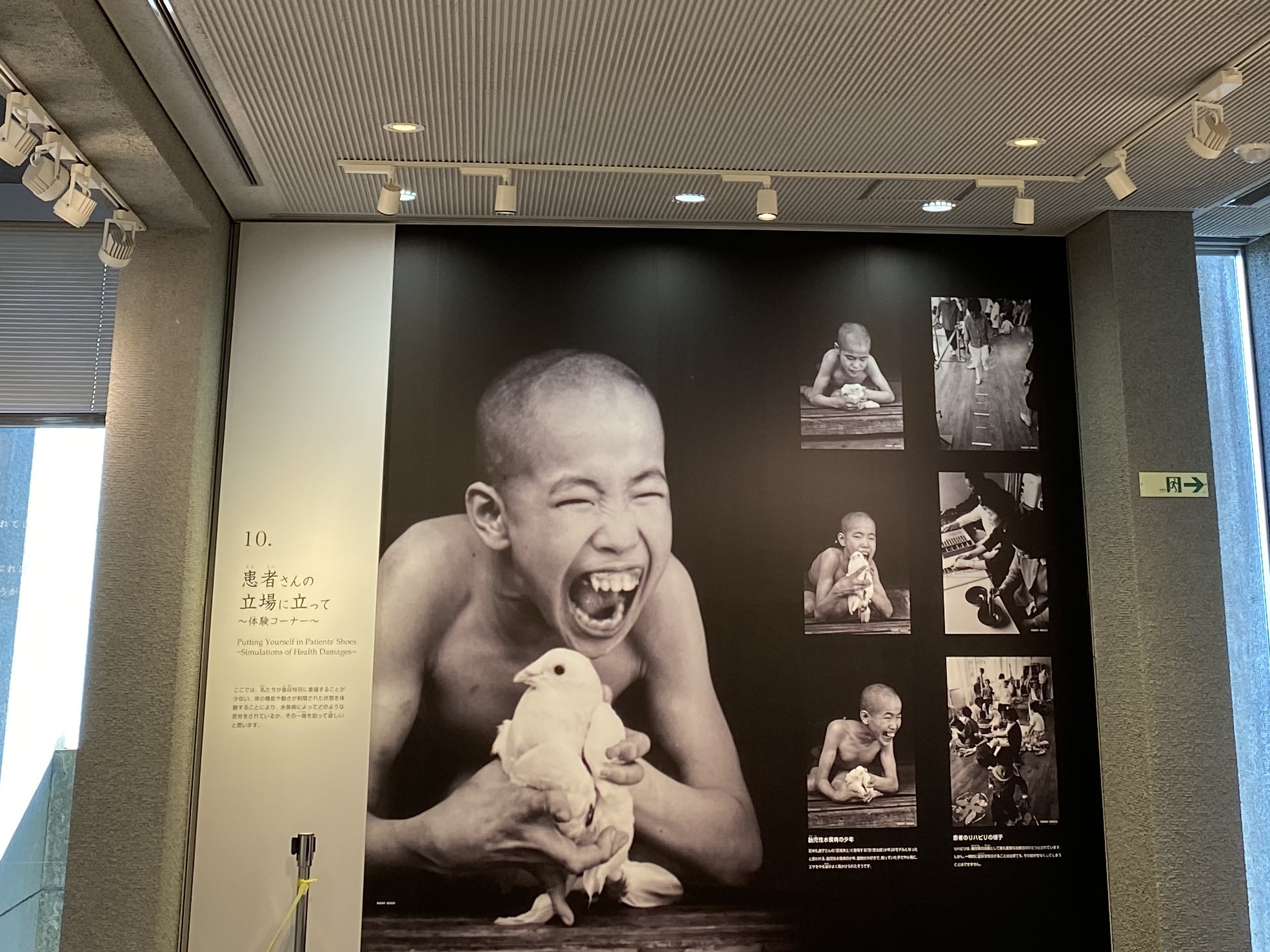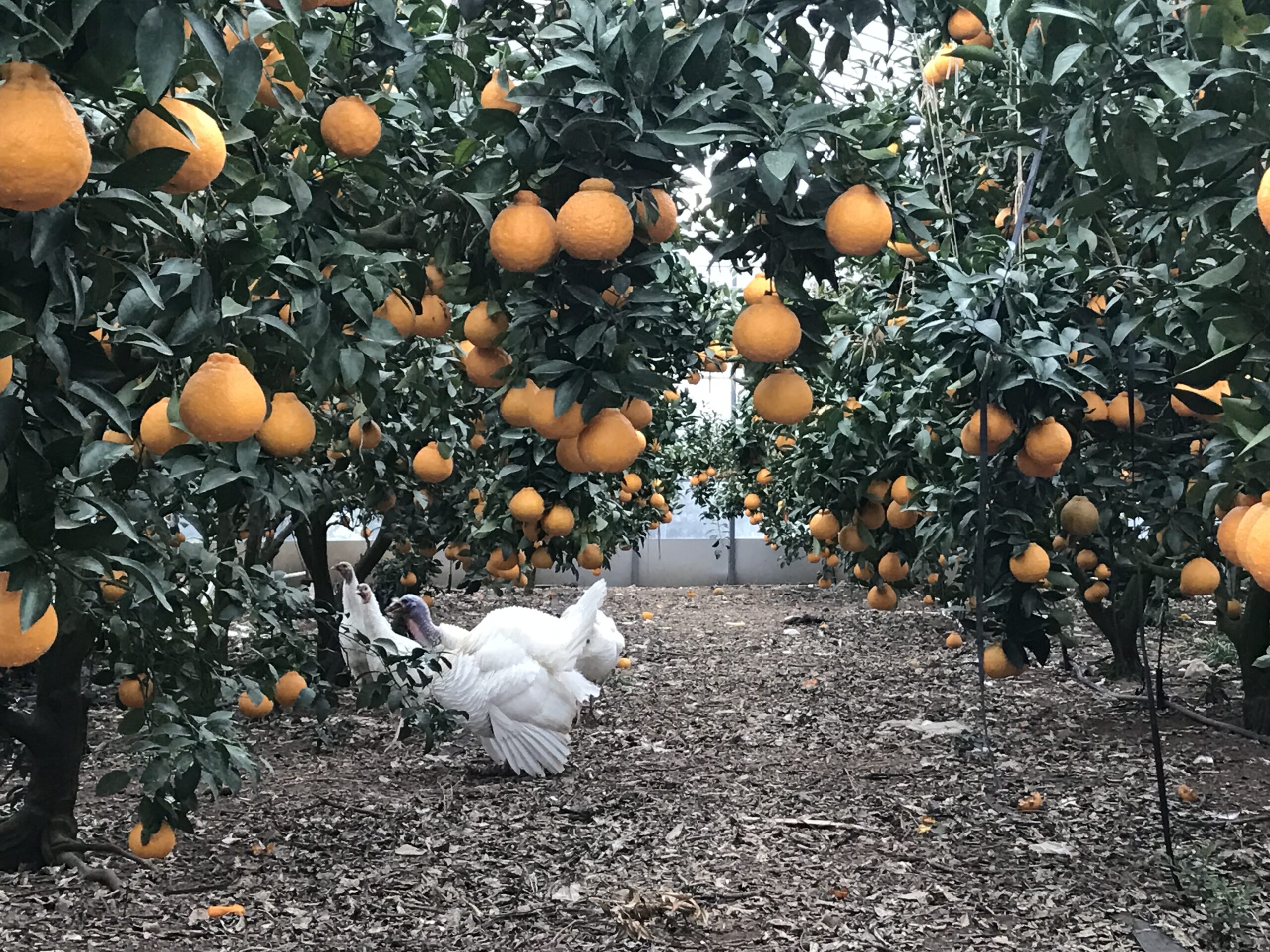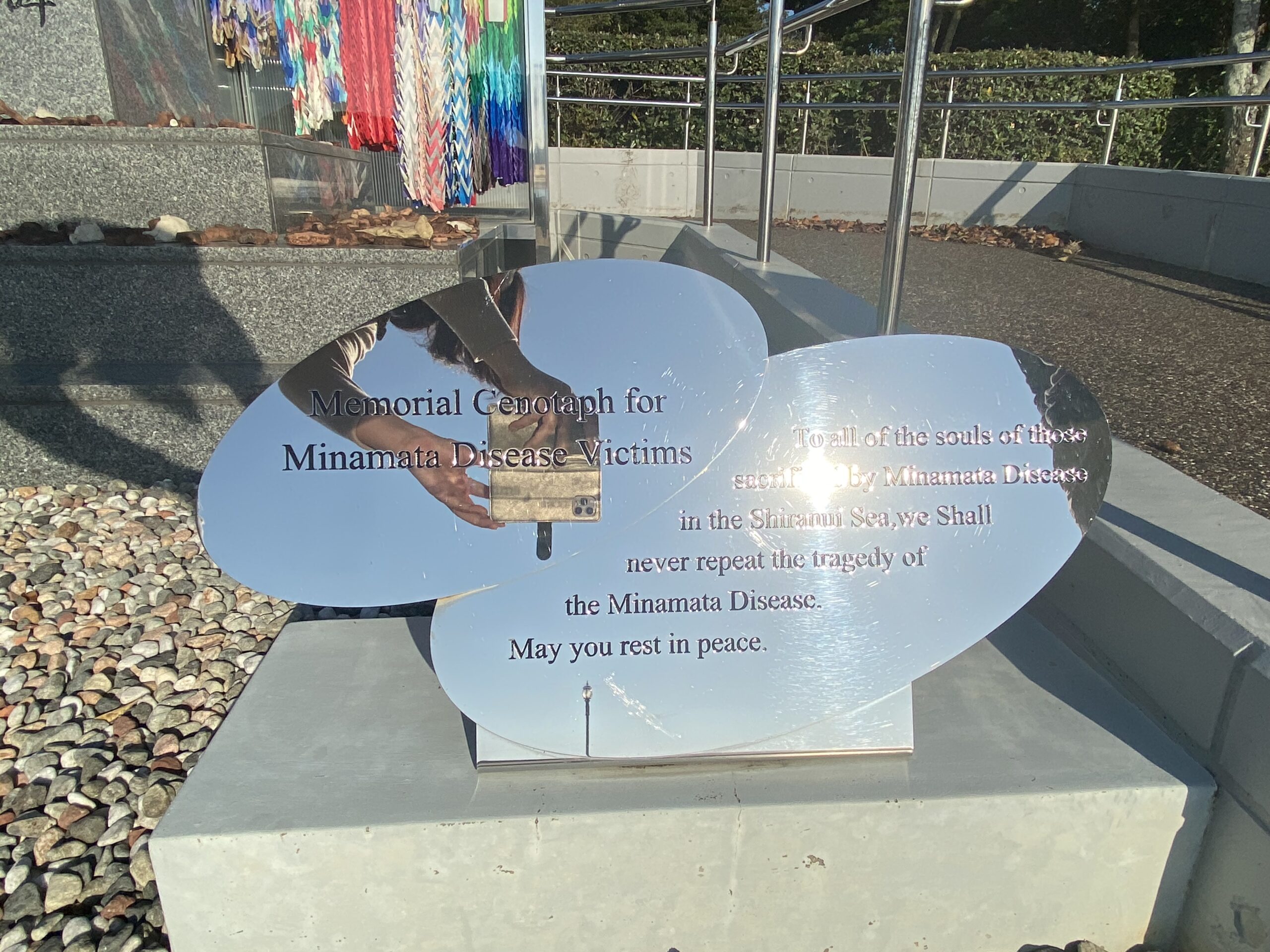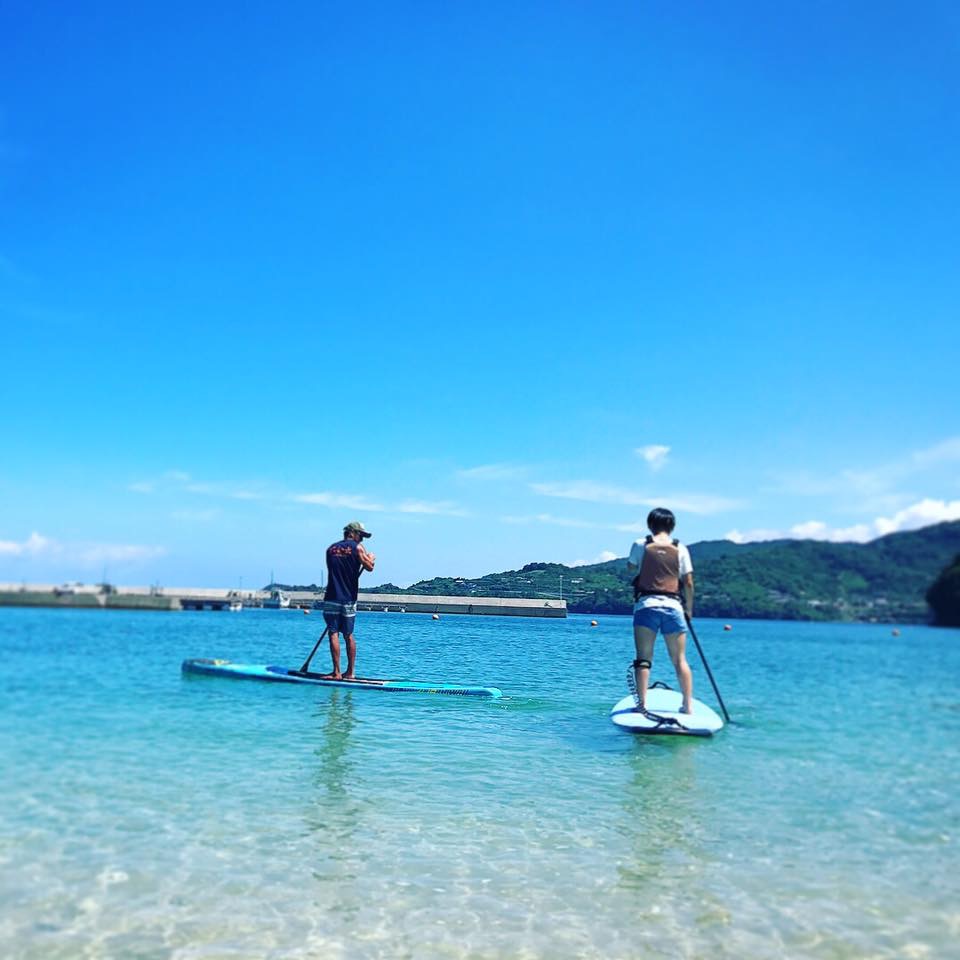Facilitators: KIM Gayeon and KAJITA Natsuha
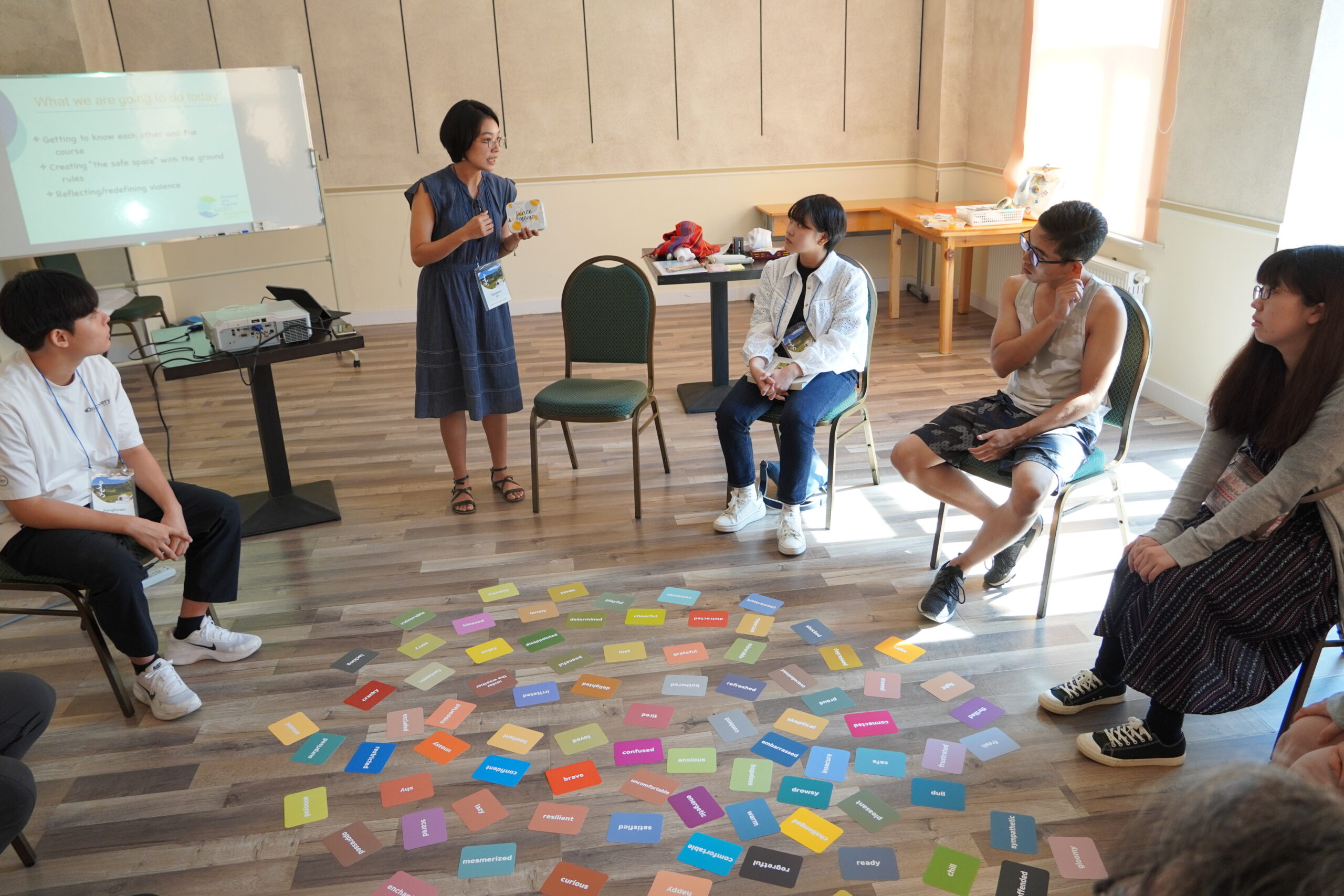
This course will provide a framework of peace and conflict studies to those who need introductory provision to the field. It will focus on three major terms of the field: conflict, peace, and violence. The participants will work on defining and understanding these terms and applying them to our local and regional contexts with specific issues and cases. Throughout the course, sessions are composed of various ways of active learning, such as group work, role plays, and communication skills exercises. Participants are expected to contribute to the course as resources to each other by sharing their knowledge, experience, and reflection on in-class activities.
2. Optimizing Peacebuilding by Increasing Trauma Awareness
Facilitators: LU deting and KATO Youki 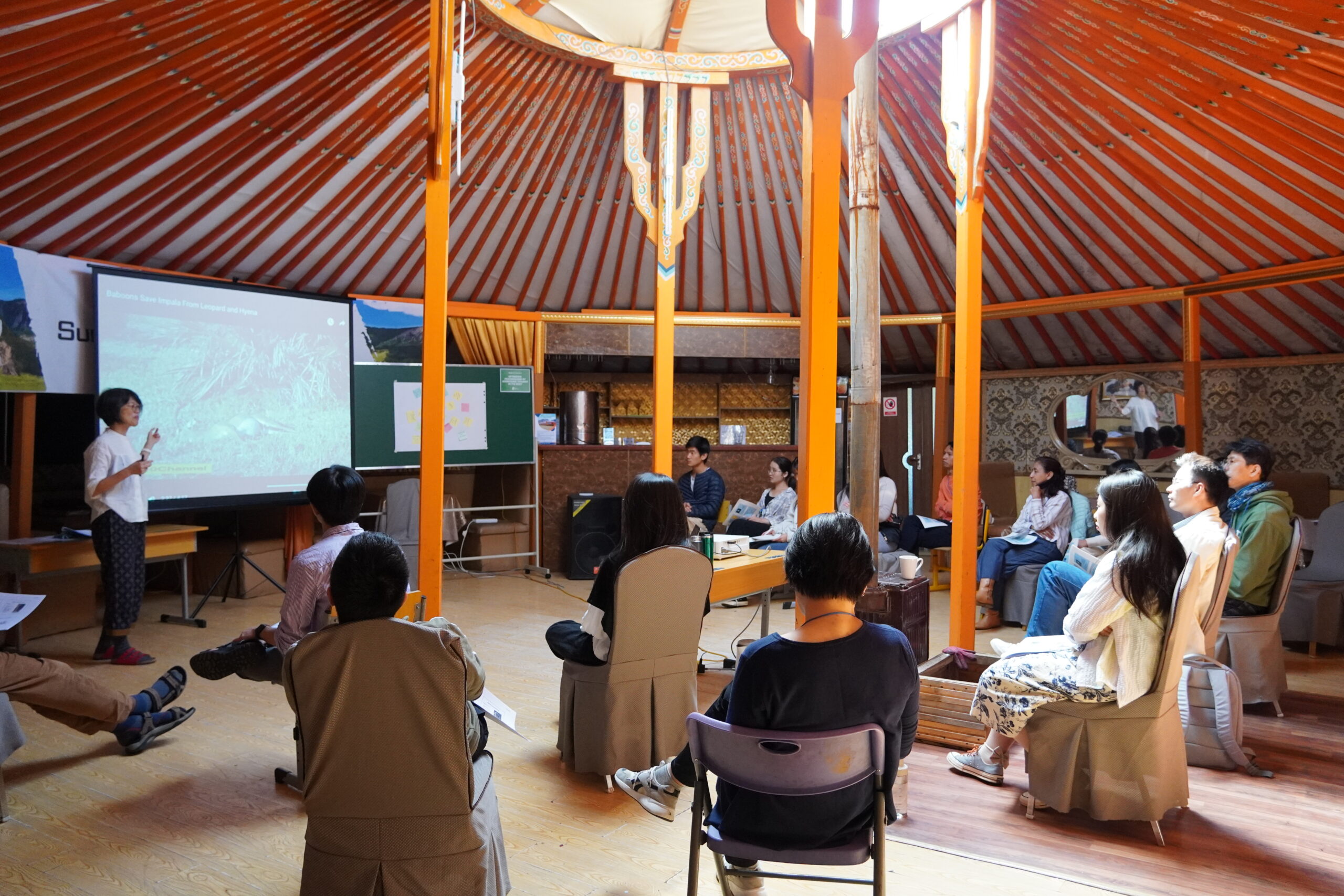
This 5-day workshop offers a space to deepen our understanding of trauma and its fundamental role in optimizing peacebuilding. Through interactive sessions, participants will learn how social, collective, and historical trauma live through generations to undermine peacebuilding and how we can work with it using somatic psychology and creative arts. This year, our dialogue will also include the Minamata story as an example to address how trauma can serve as a root cause resulting in divisions at different levels. Centered on participatory and experiential learning, this workshop may be beneficial for anyone interested in increasing their trauma awareness, thereby optimizing efforts in building lasting peace.
(Note: This course may collaborate with the Exploring Gender and Sexuality in Conflict and Peacebuilding: An Arts-based Approach course for certain sessions.)
3. Exploring Gender and Sexuality in Conflict and Peacebuilding: An Arts-based Approach
Facilitators: KANG Yunghun (Jeram) and OKUMOTO Kyoko 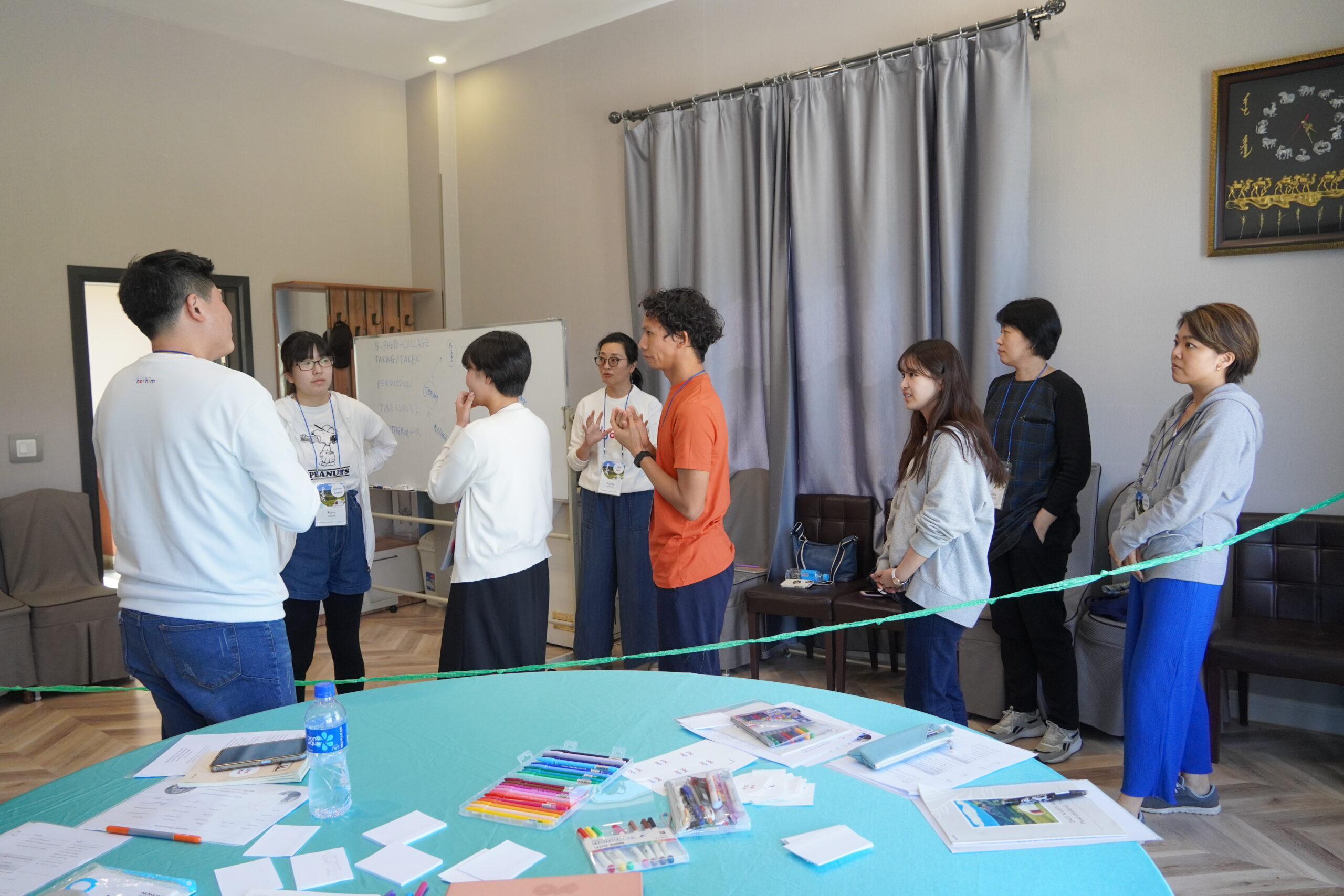
This course will consider the role of identity, especially gender, and sexuality, in conflict and peacebuilding. Participants and facilitators will start by unpacking our diverse selves. We will have a journey together to explore our and each other’s positionality. There are different structures of violence and conflict in our world today that threaten us. We see this in our treatment of minorities, our biases, stereotyping, and discrimination in different realms of society. By using arts approaches we will create a safe and peaceful space and through this try to experience different stories and contexts of our group to unpack the interplay of our identity to conflict and peace. Participants will leave as artist-activists who can take their own learnings to further a culture of peace and identity-sensitive understanding to their communities and societies in Northeast Asia.
4. Restorative Justice: Healing our Society and the Planet
Facilitators: LEE Jae Young and ISHIHARA Akiko 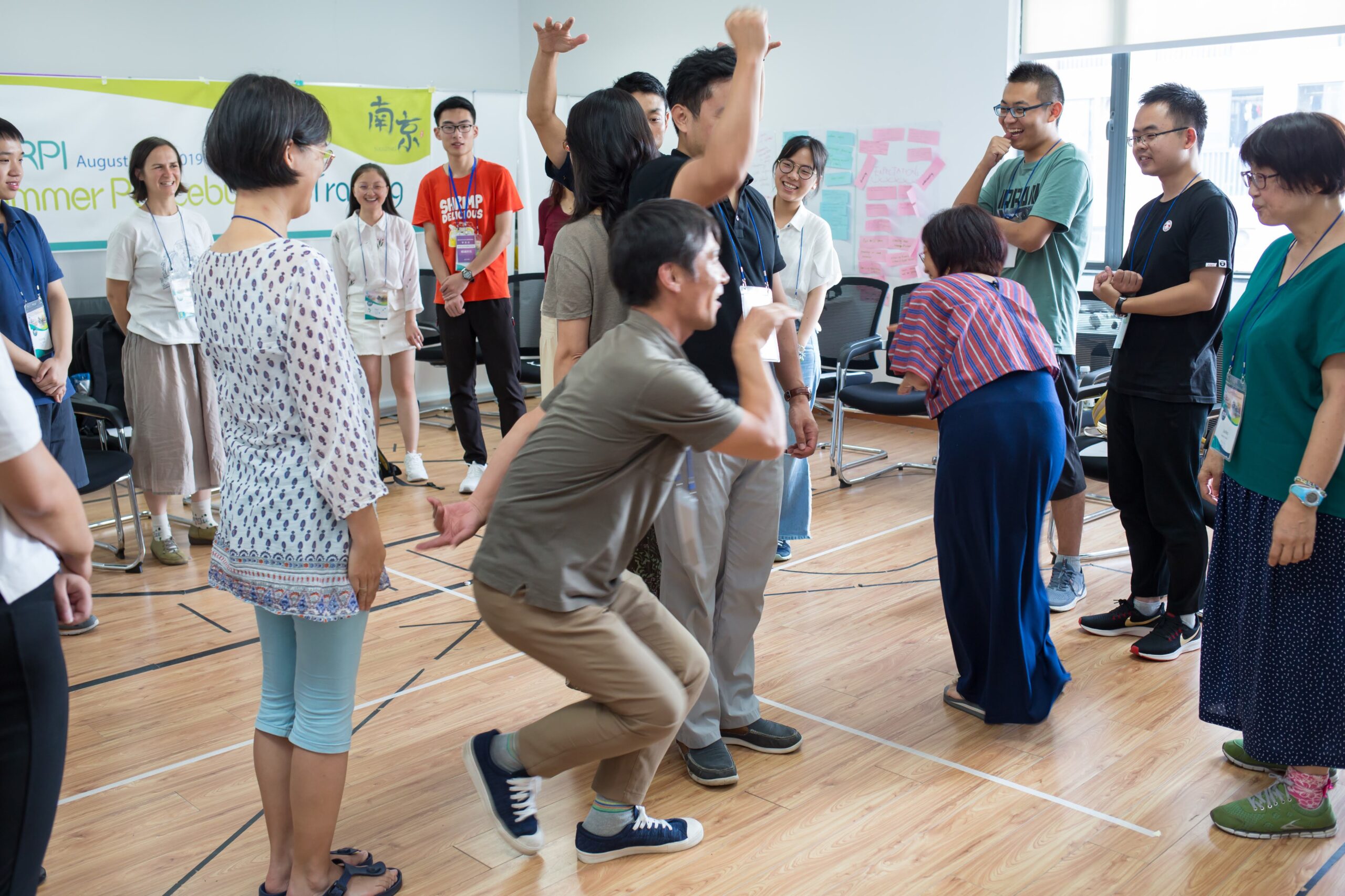
Restorative Justice (RJ) is a new justice paradigm that aims for right relationships and healing as the ultimate goal of justice. When something wrong happens, RJ focuses not only on punishing wrongdoers, but on how to meet the needs of victims, communities, and the environment that are affected by the wrongdoing. And it also invites wrongdoers into opportunities to take voluntary responsibilities through various dialogue programs in order to bring just-peace. In this course, participants will learn the basic principles of RJ and how it can be practiced in different aspects of society, such as criminal justice, school violence, and neighbor disputes. This year we will also highlight the issue of environmental justice and explore how to build just relationships with the earth and other creatures, related to environmental issues on our planet. We will explore the possibilities of bringing justice and healing in communities and ecosystems affected by environmental harm, through the lens of restorative justice.
5. Creating Peacebuilding Programs
Facilitators: Cheryl WOELK and KIM Hong Soek (Scott); Assistant facilitator: LEE Paul Kyumin
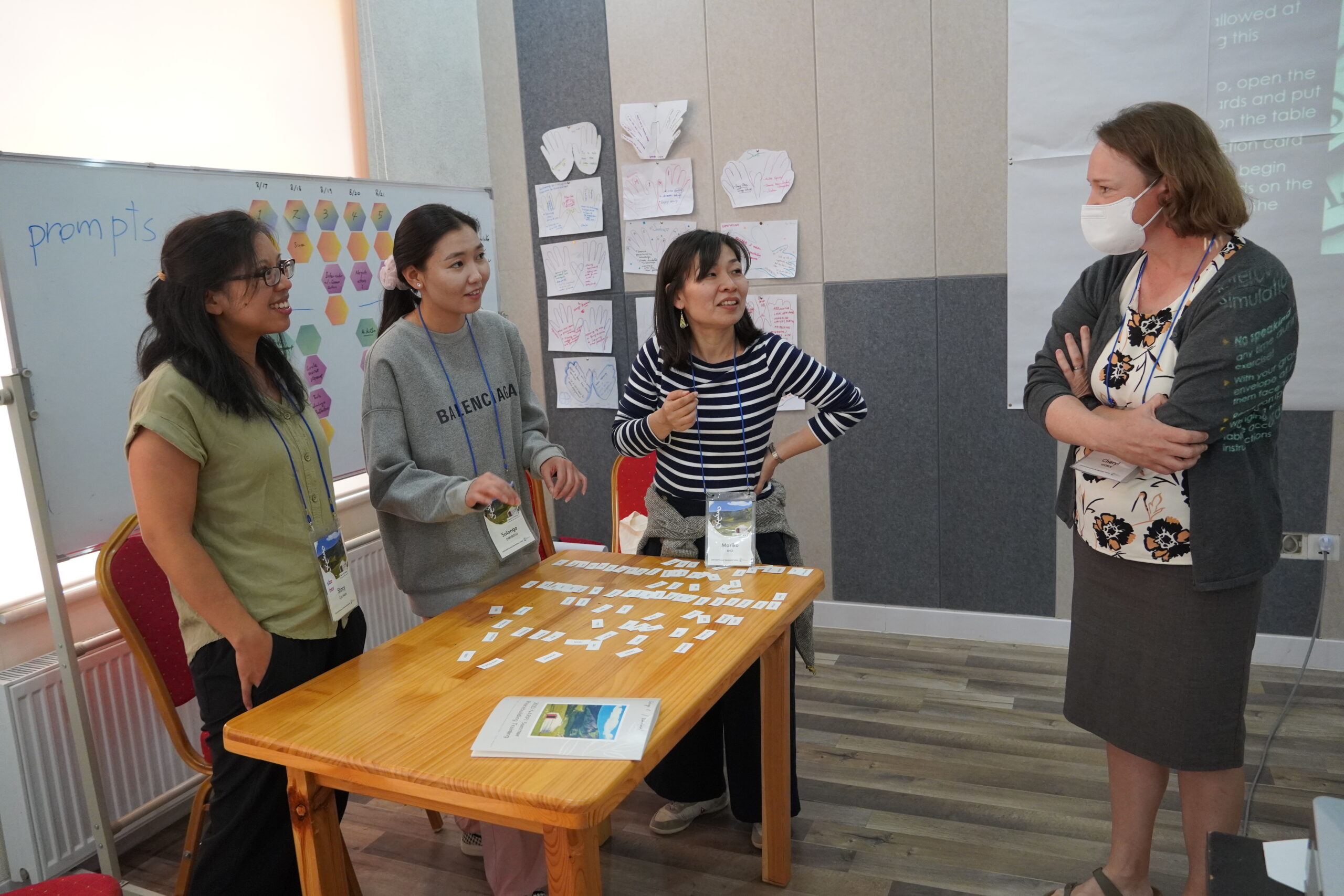
This course is an advanced course designed to support peacebuilding practitioners with at least two years of practical experience or study who want to create or expand their peacebuilding programs. Participants will bring their own experiences and ideas to the course and build a plan for the program that they want to develop. Through applying systems thinking models, conflict transformation change processes, peace education frameworks, participatory facilitation strategies, adaptive management and other tools to create a learning space where participants experience the kind of program that they want to implement, participants will equip themselves with frameworks, strategies and mindsets necessary to design and implement effective peacebuilding programs in diverse contexts.
Creating Peacebuilding Programs is an advanced course for:
- NARPI repeaters who want to create or expand their peacebuilding program
- Peacebuilding practitioners (with at least two years of work/study experience) who want to create or expand their peacebuilding program
